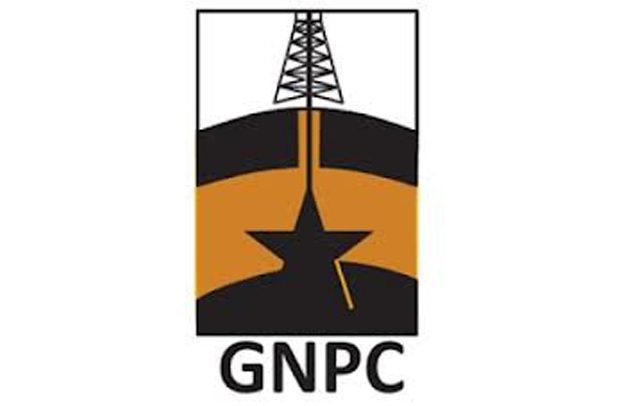
By Kingsley Webora TANKEH
Chief Executive Officer-Ghana Investment Promotion Centre (GIPC), Simon Madjie, has urged Ghanaian businesses to seek restructuring and insolvency services in times of temporary financial difficulty to avert liquidation.
“I want to strongly urge SMEs, state-owned enterprises and even large corporations to seek restructuring support at the first sign of distress and not when their businesses are already on the brink of insolvency,” he advised, noting that: “The resilience of our nation’s business environment is not determined by the number of companies that never fail, but how many are able to rise again after facing adversity”.
Speaking at the Annual Public Lecture of the Chartered Institute of Restructuring and Insolvency Practitioners (CIRIP) held in Accra, Madjie cautioned Ghanaian SMEs from making over ambitious expansion plans that are not backed by sufficient financial resources, saying this more often than not leads to liquidity problems.
“Businesses may grow faster than they can sustainably finance. This results in mis-payments to suppliers and creditors,” he noted.
The lecture, themed ‘Unlocking Business Resilience: How CIRA Empowers Companies to Recover from Distress and Thrive’, aimed to build the capacity of insolvency practitioners, the judiciary and financial players to utilise the Corporate Insolvency and Restructuring Act, 2020 (Act 1015).
“The Corporate Insolvency and Restructuring Act, 2020 (Act 1015) is a legal lifeline that offers hope to struggling and viable businesses that would otherwise collapse under the weight of temporary financial difficulty,” he said, highlighting its enactment as an important milestone in Ghana’s quest to create a resilient, supportive and forward-looking business environment.
PWC’s 2021 Report, titled ‘Why Businesses Fail’, identified weak corporate governance as the major cause of business failure in Ghana. It also revealed that poor oversight, lack of ethical leadership and flawed decision-making weaken stakeholder confidence and expose companies to reputational, market and regulatory risks.
“Many corporate failures can be traced to weak governance, poor board oversight, inadequate controls and unethical practices among parties,” Madjie noted while encouraging businesses to promote the principles of accountability, transparency and stakeholder engagement, which are important principles of good governance.
“Many businesses with strong potential have struggled to see the light of day due to inadequate governance structures,” he decried.
President-Chartered Institute of Restructuring and Insolvency Practitioners, Felix Addo, charged shareholders to appoint competent people to the company’s board of directors, saying, “their choices affect the company directly”.
“Shareholders should make sure the people they appoint to their board of directors are competent and possess the necessary skills. They should understand the duties of a company director and be willing to carry out those duties properly and be accountable at the Annual General Meeting,” he advised.
“Inadequate crisis management is another critical issue. External factors such as strong competition, exchange rate volatility, regulatory interventions and global disruptions can push even best-run businesses into crisis,” Madjie noted.
According to the 2023 PwC Global Crisis Survey, 96% of executives have encountered crisis in the past two years – yet only eight had the foundational elements in place to support resilience.
“Many companies adopt a reactive stance rather than preparing for potential disruptions. Lack of preparedness can turn manageable challenges into severe setbacks,” he noted.
The Corporate Insolvency and Restructuring Act (CIRA), 2020, brings a transformative twist to how corporate issues are addressed in Ghana.
“It was enacted to provide a modern and efficient insolvency and restructuring regime that shifts the focus from liquidation to business rescue,” he said.
“The Act recognises that failure does not have to be final and fatal. Instead, it offers a structured pathway for companies to reorganise, secure temporary protection from creditors and return to viability,” he noted.
Under the law, when a company enters into administration it is granted a moratorium – a temporary legal force that protects it from creditor actions – allowing some time for a qualified Insolvency Practitioner (IP) to conduct a thorough evaluation of the company’s operations, organise financial obligations and make recommendations for the business’s turnaround.
“This makes it easier for distressed companies to access the capital they need to recover and continue operations,” he said.
To serve the multinational companies in Ghana, CIRA incorporates provisions that allow for cooperation between Ghanaian courts and foreign jurisdictions in cross-border insolvency proceedings.
This ensures legal sensitivity for trade and investment and provides a fair and efficient process for managing cross-border insolvencies.
“In anticipation of increased cross-border commercial activity under the African Continental Free Trade Agreement, there is need for a continent-wide protocol on insolvency that is tailored to the reality of African businesses,” he said.
It should offer a harmonised framework that facilitates cooperation among member states in handling insolvency cases.
Four years after its enactment, only three companies have entered administration compared to over 400 liquidations, according to the Office of the Registrar of Companies, signalling less usage of the Act.
The post Seek restructuring support at first sign of distress – GIPC CEO urges businesses appeared first on The Business & Financial Times.
Read Full Story





















Facebook
Twitter
Pinterest
Instagram
Google+
YouTube
LinkedIn
RSS